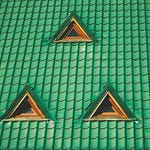
1 Samuel 4-5
Chapter 4 portrays a doctrine that Christians have long forgotten - the doctrine of the lesser magistrate. This doctrine observes how God appoints official leaders at every level of society, not just the top dog. Each leader is to affirm what is good and punish what is evil (Romans 13:3-4), without partiality (Deut. 16:18-20; cf. 1 Timothy 5:21). When a higher leader acts evilly - in the case of King Saul - the people may not revolt willy-nilly. Instead they must come under a “lesser magistrate” - in this case, David, who had not yet been anointed as king by the tribes of Israel. In this way, the people will be restrained from answering lawlessness with lawlessness. They will still be under an authority who has the power to punish their own evil and affirm their own good.
In this sense, the American “Revolutionary War” was not a revolution. It was the “War for Independence” from a lawless tyrant. Thus the Declaration of Independence served to declare why they were lawful in their actions - because of the sins of King George and Parliament - and the Constitution created a new binding authority over the people, so that at no point were they lawless and without lawful authority. (The “French Revolution” on the other hand was indeed a lawless revolt, against God, goodness and reality.)
So then, David acts as that good lesser magistrate, when two men “on his side” think they’re doing something good, by assassinating Ish-bosheth, Saul’s son. It is an assassination, because they kill him not in lawful combat, but under false pretense, while he’s sleeping in his bed (4:4-5). The battle has already been won; Saul and his army have been defeated (chapter 3). These assassins are like those cowards who fought after the World War 1 Armistice had been declared, just to get some glory.
But David will not allow lawless killings among his own men. Thus the two men are (lawfully) executed and hung, their hands and feet dismembered, as a warning to the rest. David impartially affirms good and punishes evil, except for the fact that he did not punish the more powerful Joab in the same way for the same crime (3:30). David is good, but a greater David is needed - and will yet come.









